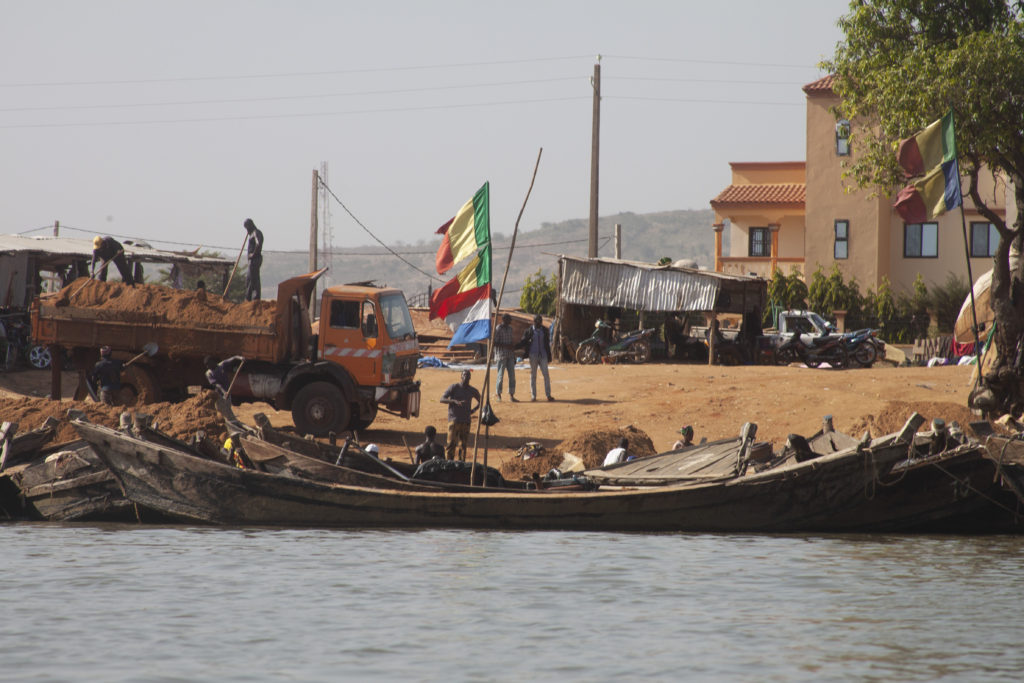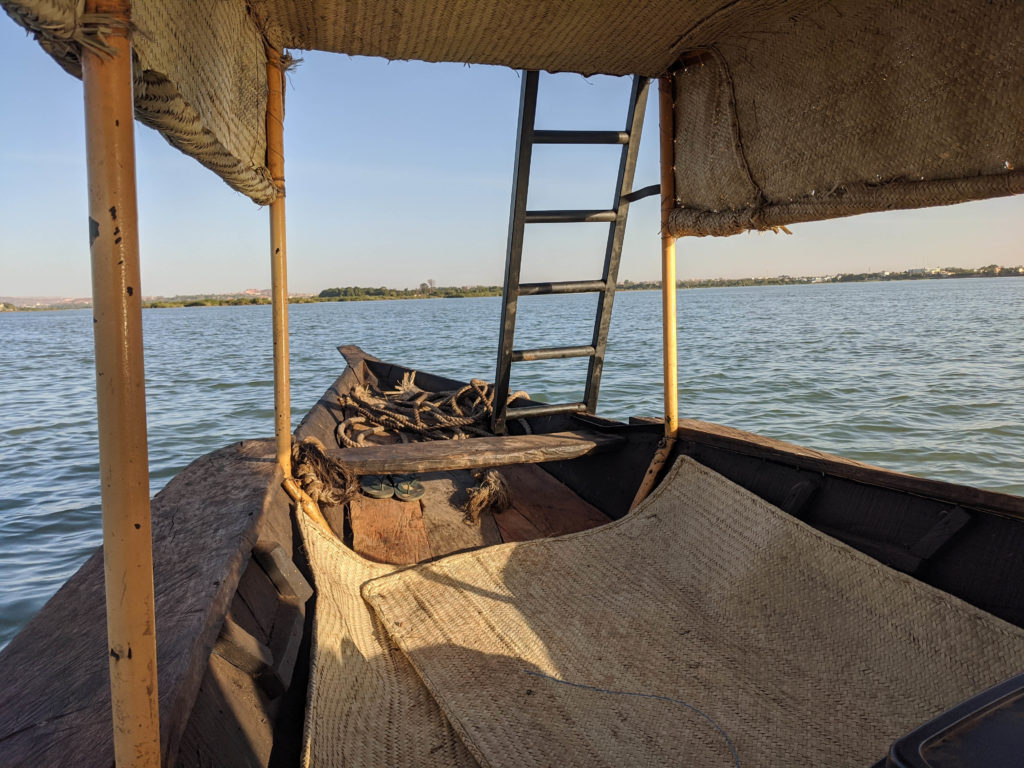
“Drinking Tea with the Neighbors: Informal Clubs, Social Trust, and Trustworthiness in Mali” – with Jacopo Bonan, Philippe LeMay-Boucher, and Bassirou Sarr
Despite substantial theorizing on social capital, there has been scant empirical evidence of the relationship between associational membership and trust and trustworthiness toward broader society. This study explores informal social clubs with diverse membership in a weak West African state: Mali. It asks whether membership in these groups is associated with greater general trust and trustworthiness? The study leverages 18 months of mixed-methods fieldwork in Mali, including 375 group surveys, 2,525 surveys of members and non-members, more than 1,300 trust games, as well as transcripts from focus groups in 69 of these clubs. We find evidence strongly suggestive of links between associational membership and general trustworthiness. The clubs embody characteristics that social capital theorists believe to generate trust: egalitarian composition, diverse membership, positive reciprocity, and face to face interaction. We use propensity score matching to analyze how members and non-members play the trust game. We find that members of these groups are more trustworthy. As receivers, they return 12\% more to their partners in the trust game than similar, non-member peers. This result holds whether games are played with members of the same or different linguistic communities. We do not find a systematic effect of membership on trust. Trustworthiness in the game is also positively correlated with self-reported attitudinal trust and real world behaviors that we might associate with trustworthiness including volunteering in the community and helping friends. Analysis of causal statements within the focus group data suggests that the experience of membership in these groups, rather than self-selection alone, fosters general trustworthiness by bridging across society and expanding members’ networks, facilitating bonding between members from diverse backgrounds, socializing participants into pro-social Malian norms, and providing stress relief
“Indigenous Associations and Public Goods Provision: Experimental Evidence from Grins in Mali” – with Jacopo Bonan, Philippe LeMay-Boucher, and Bassirou Sarr
What roles can social clubs, groups or associations play in the provision of public goods? In many developing countries, the under-provision of public goods by the state is commonplace. The lack of provision leaves room for non-state actors to contribute to the welfare of local communities through redistribution, social protection and, in some cases, the delivery of basic goods such as sanitation, education, security and infrastructure. In this context, they can make modest contributions to the welfare of their communities and are sometimes important conduits for economic development initiatives at the grassroots level. This paper examines the potential provision role of informal indigenous associations – social clubs referred to as grins in urban Mali. Grins are voluntary associations which serve as conduits of social integration in urban Mali. They are also meeting points and exchange venues for various individuals. In a field experiment involving 1270 grins (over 9450 individuals), we compare the results from different thresholds in step-level public goods games conducted in three environments: within grins, with randomly selected members from different grins and with randomly selected non-members. This allows us to better understand the comparative ability of grins to contribute to public goods provision and to highlight what group characteristics generate better provisions. To date, most of the experimental literature on step-level public goods games has used minimal groups, often in lab settings. To our knowledge, we provide the first evidence of such public goods games played by group members and non-members in the Global South. Moreover, our design allows us to disentangle the group effect (playing with co-members) from the selection effect (what drives both the decision to become a member and the behaviour) on public good provision.
“Can Student Body Diversity Foster Inter-ethnic Trust and Tolerance? Evidence from Kenya” – with Bob Dowd, Danice Guzman, John Mugo, and Jackline Oluoch-Aridi
This paper evaluates the effect of ethnic student body diversity on trust, tolerance, and a sense of national identity among secondary school students in Kenya. How do secondary schooling experiences in more ethnically diverse schools affect the degree to which students of various ethnic groups are trustful and tolerant of each other? How does attending a more diverse school affect a sense of common nationhood? We leverage the Kenyan government’s policies for student placement into secondary schools as well as an expert matching exercise to compare students in similar secondary schools with and without diversity quotas. We confirm that, consistent with the intention of the policy, the student bodies of new national schools come from more Kenyan counties and ethnic groups than comparable extra-county and county schools. We draw on an original survey of 984 Form 4 (grade 12) students in 5 Kenyan counties and compare students in 10 new national schools and 10 county or extra- county schools. We find that friendship with members of other ethnic groups is more common in diverse national schools. National school students have 10% more friends from different ethnic groups (p<.01) than students in comparison schools. Interethnic friendship is associated with heightened tolerance, behavioral and self-report trust measures, and the prioritization of national identity over more local identities such as ethnic groups. In measuring the characteristics of students’ best friends, a change from all friends of the same ethnic group to all friends from a different ethnic group is correlated with increases in comfort marrying someone from another ethnic group (10%, p<.05). In addition, friendship with people from different ethnic groups is correlated with higher rates of generalized trust and behaviors indicating trust, which in this study was signified by lending possessions. A change from no friends outside one’s own ethnic group to all friends of another ethnic group is correlated with a 19 percentage point increase in the likelihood of reporting trust of other ethnic groups and a 10 percentage point increase in trusting behaviors such as lending of possessions (p<.01 and p<.05, respectively). Finally, students with interethnic friendships are more likely to prioritize nationality identity above more local identities such as ethnic group or county (14%; p<.05) ; they are also less likely to rank ethnic group first in a list of potential identities (10%, p<.01).

“Dressing for Success: The Impact of a Governance Training and Uniform Distribution to Village Development Councils in Malawi” – with Tushi Baul, Boniface Dulani, Danice Guzman, Emily Maiden, and Juan Valdez
A literature in political science suggests that citizens cues about candidate dress and appearance in their evaluations of professionalism and capability. However, the effect of uniforms has not yet been explored in Africa. This paper leverages a randomized control trial, which provided governance trainings and a uniform distribution to village development council (VDC) members in Malawi. These voluntary organizations are made up of male and female villagers and are charged with organizing development projects in the village including mobilizing other villagers’ labor. Specifically, we seek to explore whether the training and uniform distribution program increases village development council members’ internal efficacy, their participation and commitment to VDC activities, as well as village members’ perceptions of these council members. The data reveal that male and female members face specific challenges in their participation in the councils, but that the uniform distribution and training can positively shape evaluations of their own performance and capabilities. We draw on VDC member surveys and villager surveys including an embedded survey experiment to further explore the role of dress in leader evaluations.
“When Will Civil Society Monitor the State? Evidence from Mali” – with Jessica Gottlieb and Katrina Kosec
Poor local governance is a pervasive problem in many new democracies where state capacity to provide services is weak and democratic accountability mechanisms are constrained. Bottom-up mechanisms to strengthen local government accountability are popular; they aim to empower citizens—whether as individuals, or participants in civil society organizations (CSOs)—through provision of information as well as opportunities to exercise their “voice” and to be involved in policymaking. However, these interventions often fail due to information and power asymmetries between elites and citizens in these contexts. Little is known about how already coordinated groups of citizens—that is, CSOs or associations whose members are engaged in activities outside the state or partisan networks—can use their existing capacity to hold government accountable. While their presence can reduce information asymmetries and facilitate coordination among citizens, their leaders may also be susceptible to government capture. This highlights a key theoretical puzzle regarding which types of CSOs would be most likely to monitor the state: those that have the most capacity and autonomy to do so are also those who could strike the best collusive bargain. To better understand variation in CSO types and how it determines willingness to monitor the government, we carry out a survey experiment with 1,000 CSO leaders from 48 rural and urban communes in Mali. Specifically, we present audio-recorded vignettes to CSO leaders describing a 5-year, performance-based funding program in which a hypothetical mayor misuses public sector funds in year 1. With the help of a training program which provides information about the mayor’s actions and a reporting mechanism to the CSO leader, respondents have a choice to expose this corruption or stay silent. If the CSO chooses to report the bad behavior, it should incentivize the mayor to behave ethically in years 2-5, but this costs the community a performance bonus (awarded annually if the mayor behaves ethically) in year 1. We assign experimental treatments that vary 1) whether the CSO’s access to training and the right to oversee the mayor is permanent or temporary, and 2) whether the CSO’s report is anonymous to assess if these conditions impact leaders’ willingness to sanction the mayor. The first tests whether a CSO is less likely to collude with the mayor when the shock to their bargaining power is short-lived; the second tests whether reducing the costs of future punishment by the mayor can also increase reporting. By experimentally altering the perceived costs and benefits of reporting, these treatments help us understand whether—and for which types of CSOs—low-cost means of altering the incentive environment for civil society monitors might improve government accountability.

“Assessing the Rally Effect in Mali? Domestic and International Legitimacy in the Context of Continued Territorial Threat” – with Lauren Honig and Andrea Pena Vasquez
“Youth in the West Africa: Quests for Inclusion and the Future of Governance” – with Trevor Lwere and Boukary Sangare
“Youth Patterns of Political Attitudes and Engagement: Lessons from Northern Ghana” – with Kevin Fridy and Paul Friesen
